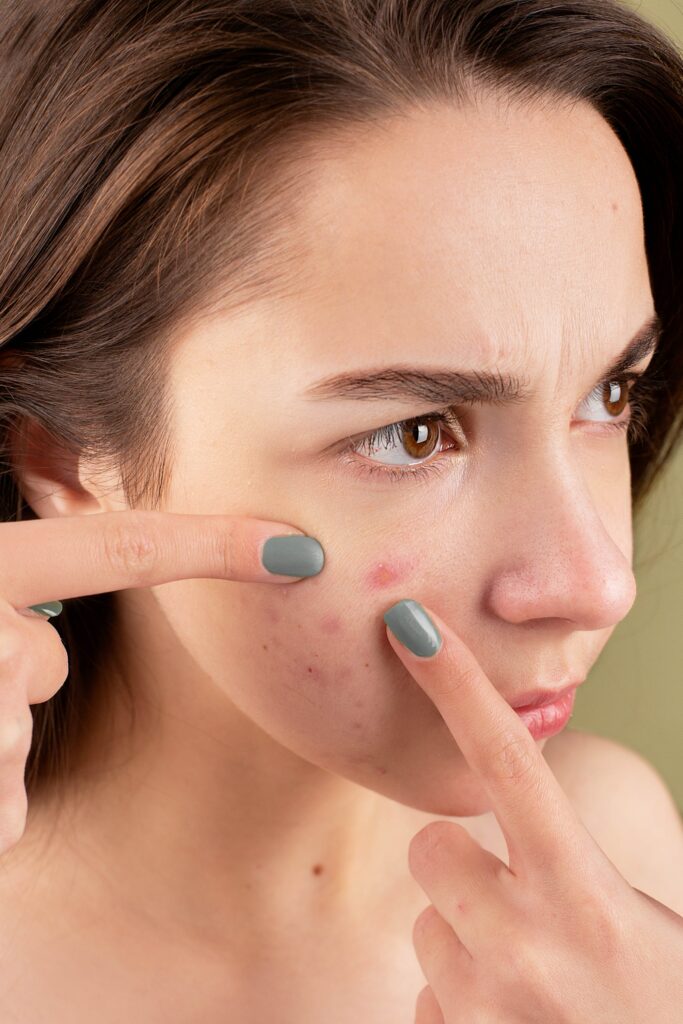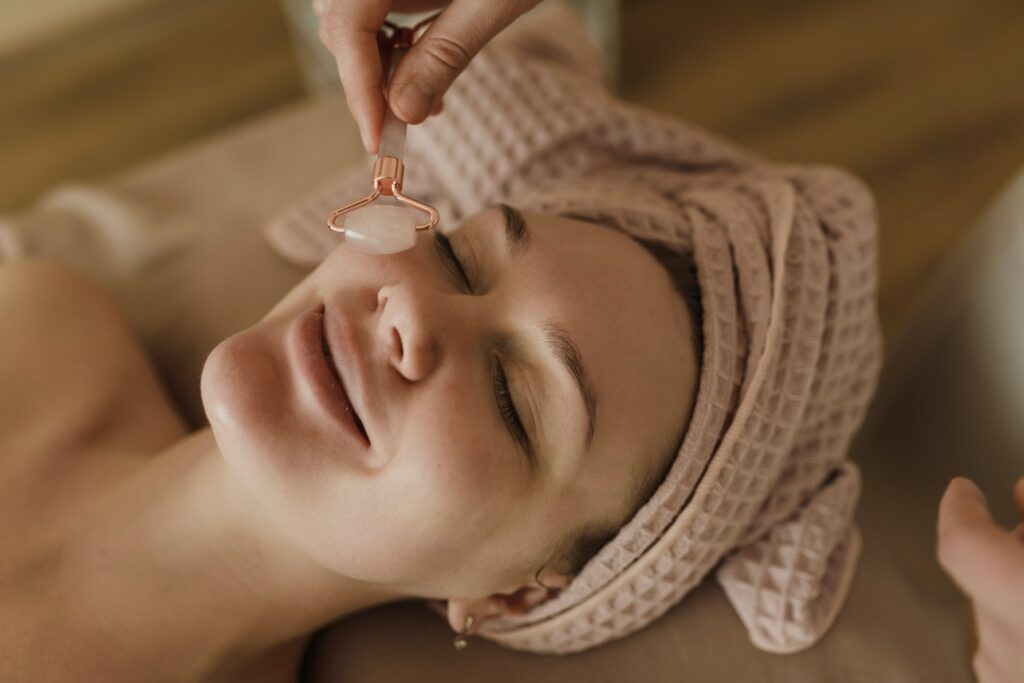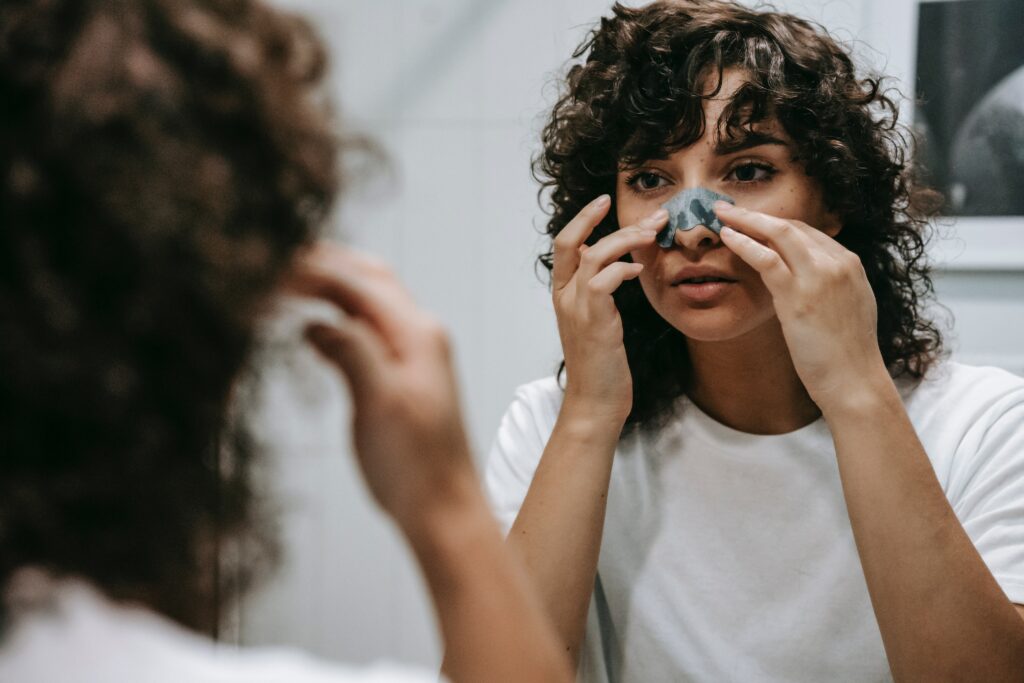Acne is a common skin condition that causes pimples, also known as zits or blemishes. These occur when oil, bacteria, dead skin cells, and dirt clog your skin’s pores. If you frequently experience pimples, especially multiple ones at once, you may have acne. While acne is not a serious health concern, severe acne can be painful and may cause scarring over time.
Research shows that 9.4 percent of people worldwide have acne, and in the United States, it is the most common skin condition. Acne can also affect a person’s emotional well-being, causing self-esteem and confidence issues, and contributing to feelings of anxiety and depression.
It’s important to know that acne is a treatable condition. Effective treatments are available to reduce the number of pimples and prevent scarring. If you have acne, don’t hesitate to talk to a healthcare professional to explore treatment options.
The different types of acne
Acne can take on different forms, and a combination of lesion types may be present in those with the condition. The most common types of acne are
- Blackheads, or open comedones, that appear as tiny dark spots on the skin’s surface due to the accumulation of oil, dirt, and dead skin cells.
- Whiteheads, or closed comedones, that develop under the skin’s surface and appear as small, flesh-colored bumps.
Inflammatory lesions are more severe and can lead to scarring. These include:
- Papules, which are small red bumps caused by inflamed hair follicles
- Pustules, which are small red pimples with pus at their tips
- Nodules are solid lumps that are often painful and form deep within the skin
- Cysts are larger and contain pus.
Symptoms of acne

Acne can manifest on various body parts, but it is most common on the face, neck, back, shoulders, and chest. Pimples can give the skin a rough and uneven texture. Along with pimples, one may also experience skin discoloration, such as hyperpigmentation and redness, as well as swelling, inflammation, pain, and tenderness.
Poping pimples can increase the chances of scarring, so it is recommended to avoid squeezing them. Healing time for a pimple can vary from a few days to several weeks, but an acne breakout can take even longer to clear up, especially without treatment.
What causes acne?
What causes acne isn’t completely understood yet. Scientists think that the biggest reason teenagers get acne is because of the hormonal changes that happen during puberty. Women might also get acne because of changes in hormones during pregnancy or right before their period. Dermatologists divide acne into two types:
Inflammatory Acne: This kind of acne happens when pimples get red and swollen, forming raised bumps on the skin. Doctors call these bumps “papules.” Inflammatory acne can be painful.
Non-inflammatory Acne: This type of acne includes blemishes like whiteheads and blackheads.
What can trigger an acne breakout?
There are many things that can cause an acne breakout, including physical, emotional, and environmental factors. Here are some common triggers:
- Wearing hats, headbands, or other clothing or accessories that rub against your skin and trap sweat, irritating your skin
- Using oil-based makeup
- Living in or spending time in a humid environment
- Taking certain medications, like Lithium, Phenytoin, or steroids
- Being exposed to excessive dirt and dust
- Experiencing hormonal changes
- Feeling stressed or anxious
Treatments for acne

The treatment of acne depends on its severity. For mild cases, over-the-counter medicated creams, cleansers, and spot treatments can be used. These may contain ingredients such as benzoyl peroxide or salicylic acid, which help dry out existing pimples, prevent new ones from forming, and kill acne-causing bacteria.
If the symptoms persist after using OTC treatments, professional treatment may be needed. A dermatologist or healthcare professional may prescribe medication to reduce symptoms and prevent scarring. For moderate acne, a dermatologist may recommend prescription-strength benzoyl peroxide, antibiotics, or retinoids. In severe cases, a combination of oral antibiotics, benzoyl peroxide, topical antibiotics, topical retinoids, hormonal birth control, or oral isotretinoin may be used.
However, many acne treatments, including Accutane, can have severe consequences for a developing fetus. If you plan to become pregnant or believe you could be pregnant, ask your doctor if you can continue taking acne medication. Medical procedures like photodynamic therapy, dermabrasion, chemical peels, and cortisone injections may also be recommended to treat severe forms of acne and prevent scarring.
Acne home remedies

Acne home remedies are commonly used, but not all of them are effective and some may even worsen acne. Here are some home remedies that may help clear up acne and prevent future breakouts:
- Apply tea tree oil: Tea tree oil has natural antibacterial properties that can help reduce acne-causing bacteria. Dilute the oil with a carrier oil like coconut oil before applying it to your skin.
- Apply aloe vera: Aloe vera has anti-inflammatory properties that can help reduce redness and swelling caused by acne. Apply pure aloe vera gel to your skin or look for skincare products that contain aloe vera.
- Use a honey mask: Honey has natural antibacterial properties and can help soothe and hydrate your skin. Apply a thin layer of honey to your skin and leave it on for 10-15 minutes before rinsing it off.
- Refresh your face with green tea: Green tea has anti-inflammatory properties that can help reduce acne. Brew a cup of green tea and let it cool down before using it as a toner or spritzing it onto your face.
- Avoid touching your face: Touching your face can transfer bacteria and oil to your skin, leading to breakouts. Avoid touching your face as much as possible, and wash your hands before touching your face.
- Never squeeze or pick pimples: Picking at pimples can cause scarring and spread bacteria and oil, leading to more breakouts. Resist the urge to pop pimples, and instead use gentle skincare products to help clear them up.
Prevent acne
While it’s not always possible to completely prevent acne, you can take certain steps at home to help lower your chances of getting pimples or breakouts.
Here are some tips you can try:
- Wash your face daily with an oil-free cleanser.
- Use an over-the-counter acne cleanser to help remove excess oil.
- Use water-based makeup or products labeled as “noncomedogenic”, which are less likely to clog your pores.
- Avoid skincare and makeup products that contain oil.
- Always remove makeup and cleanse your skin thoroughly before bed.
- Shower or wash your face after exercising.
- Tie back long hair to keep it out of your face.
- Avoid tight-fitting hats, headbands, and clothing that covers breakout-prone areas.
- Eat a balanced diet and stay hydrated.
- Take steps to reduce stress.
Consulting with a dermatologist can also provide additional advice and guidance on managing and preventing acne.



